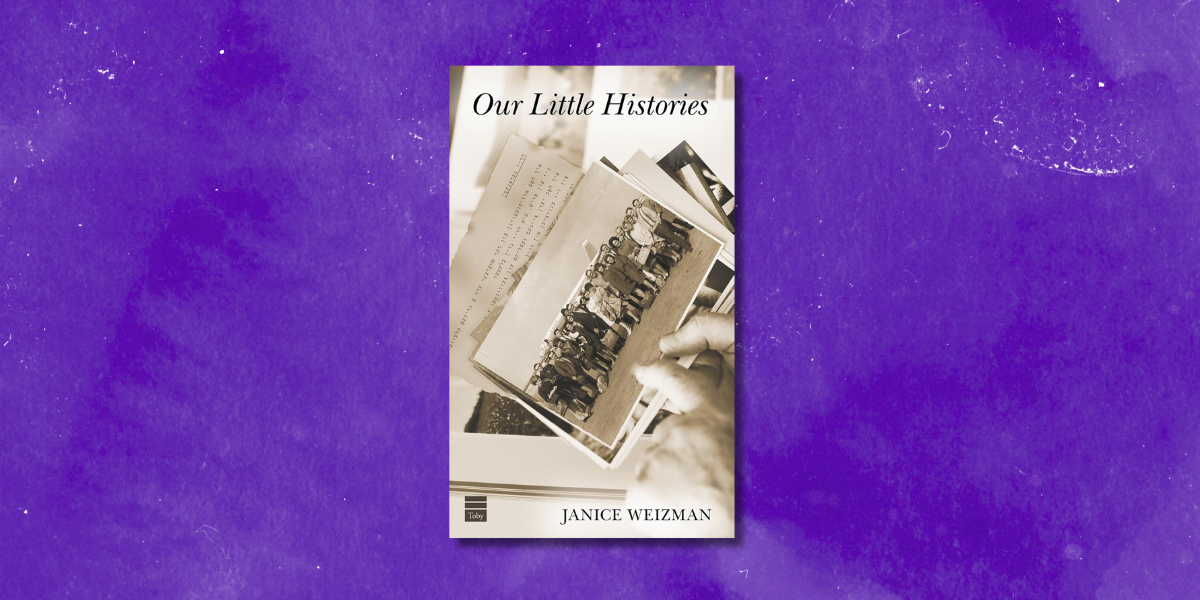Books
Fiction
Multigenerational, Multifaceted ‘Our Little Histories’

Our Little Histories
By Janice Weizman (Toby Press)
In Our Little Histories, Janice Weizman takes readers not only around the world but also back in time, weaving together the strands of a multigenerational Jewish family separated—and then reunited—by antisemitism and tradition.
Jennifer Greenberg-Wu, a museum curator in present-day Chicago, is invited by a wealthy oligarch intrigued by his own Jewish heritage to stage a “living installation” exhibition in Belarus showcasing the country’s Jewish past. His vision is an unusual exhibition/reality theater featuring “Jewish people living their Jewish lives.” Jennifer reaches out to her long-lost cousin, Nadav Markovitch, who lives in Israel, to take part in the exhibition. He is observant, and she has asked him and his family to be one of the displays, re-enacting Jewish practices and traditions before an audience.
The project causes Jennifer, an atheist married to a non-Jew, to start investigating her own hazy Jewish roots. With her teenage daughter, Cassie, she travels through the area once known as the Pale of Settlement, home to former shtetls and urban Jewish communities, to conduct research for the exhibition and delve into her own traditions and history. Her exploration paves the way for a series of intricate and intimate stories looking back at six generations of her own now far-flung Jewish family.
Each of the book’s seven chapters depicts a different family story. Weizman—a Toronto-born transplant to Israel whose first novel, The Wayward Moon, won the Independent Publishers Award and the Midwest Book Award—traces the family’s history backward in time. She highlights the pivotal decisions made by each generation that ultimately caused the family to spread throughout the world.
In these “little histories,” Weizman recounts life in a pre-state kibbutz, 1930s Chicago, pre-World War II Vilna and Minsk and 1960s Tel Aviv. She arrives finally, in the last story, at the impoverished shtetl of Prepoisk, in Belarus, where one woman, Raizel Shulman, is forced to make a heartbreaking decision in order to save her three young sons. It is a moment that triggers the migrations that are central to the rest of the stories.
Weizman’s storytelling is masterful and her characters and their settings well-researched. While the story of each family member is unique, together they form a universal Jewish saga.
Ruth Marks Eglash is a Jerusalem-based veteran journalist who writes for multiple outlets.










 Facebook
Facebook Instagram
Instagram Twitter
Twitter
Leave a Reply